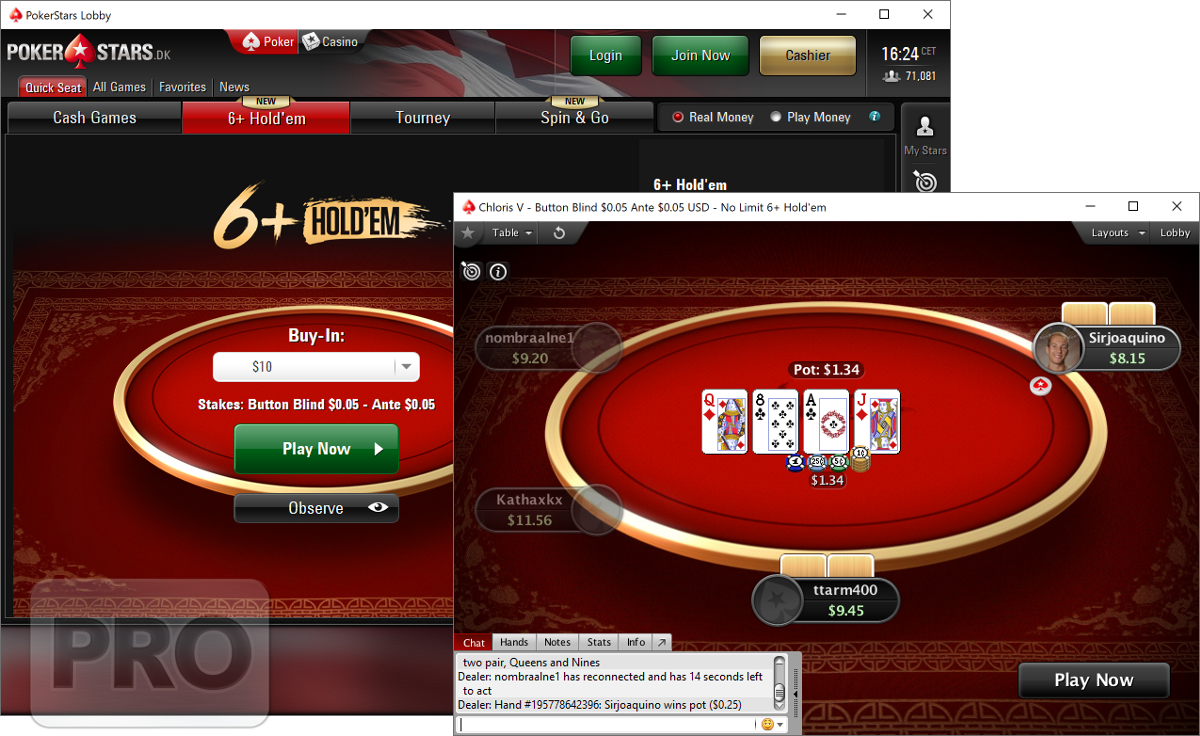Real money Texas Holdem exploded in popularity in the early years of the 21st century, and it’s largely responsible for the overall increase in online gambling. This came about primarily because of the 2003 and 2004 World Series of Poker wins by Chris Moneymaker and Greg Raymer, as both men had qualified for the tournament by playing in Internet satellite events.
- Texas Holdem Real Money App
- Texas Holdem Online For Real Money
- Ultimate Texas Hold'em Online Real Money
- Texas Holdem Online Real Money Australia
- Real Money Online Texas Holdem
Play Texas Holdem Poker for Real Money Online Internet gaming in the U.S. Has been legal and has enjoyed ever-widening popularity, since 2002. Real Money Deposits & Withdrawals Download our software for free on your desktop or mobile device, then select any of the easy-to-use deposit options listed below for your country ($10 minimum deposit, unless stated otherwise). Live Dealer Hold'em Online 2021 - Casino.org brings you the best real dealer casino hold'em sites, with real money games and cash $$$ bonuses. Playing Texas Hold'em for real money, as opposed to practice play, provides many advantages for online players. Not only can you turn a winning hand into money which you can withdraw, but you can also pit yourselves against other players in lucrative and competitive events.
Texas Holdem remains a mainstay of any virtual card room, with software giants such as Microgaming and Playtech turning out their own versions. Larger casinos commonly feature a mixture of casual players and pros, which presents customers with a rare opportunity to compete against their idols for cash.
In this article, we’ll look at some of the basics of playing Texas Holdem for real money. From finding a reliable online casino to keeping the IRS off your back, it’s been created with the intention of helping both novices and seasoned pros. By the time you’ve finished reading, you should be better prepared to enter the exciting world of virtual card playing.
Playing Texas Holdem for Real Money
The biggest difference between playing Texas Holdem for fun and real money is, of course, the presence of actual cash. You can find free versions of most any casino game online, and these are designed to teach you the basics without draining your wallet in the process. Since most of these are games of chance, though, the actual outcome isn’t much different (unless the designers of the free software have decided to grant the player a higher-than-usual winning percentage).
There is one bit of good news when transitioning from free to real money Texas Holdem, however. When you play the free version, the computer is usually going to make the best moves possible for your virtual opponents. This isn’t always the case with real-life opposition, though, as they may be distracted or just downright awful at the game of poker. Therefore, some players find that their overall success rate is better against live opposition.
The Basics of the Game

The objective of Texas Holdem is to create the best possible 5-card poker hand using a combination of your two hole cards and five community cards. The last player remaining in a hand wins all the money in the pot.
The game is played by a group of individuals seated around a table, and the current dealer is indicated by possession of the dealer button (which passes clockwise following each hand). To the immediate left of the dealer is the player responsible for posting the small blind. The player to their left is charged with posting the big blind before the start of a new hand, and it’s usually worth double the value of the small blind. These blinds are always required at the start of a hand, and some games may also stipulate that the other participants chip in an ante bet.
After the initial wagers have been made, the dealer gives each player two face-down cards (known as “hole cards”). From this point on, each dealer action is followed by a round of betting on behalf of the players.
The dealer next places three community cards face-up in the center of the table (known as “the flop”). After another round of betting, a fourth card is added (“the turn”). Finally, a fifth card is added (“the river”) after the players have once again had a chance to make their wagers.
During any betting round, the player can choose to continue or fold. In the case of the latter, the player forfeits all money that they’ve committed to the current hand.
There are cases when a player may win simply because everyone else has folded. In most scenarios, however, a hand comes down to two or more players (known as the “showdown”). These opponents engage in one last round of betting, at which point any of them may still choose to drop out by folding. If at least two participants remain, the players reveal their hole cards to determine which one has the superior five-card hand.
The winner collects the pot, as the hand is now complete. The dealer button rotates clockwise to the next player, which also changes the position of the small and big blinds. At this point, another hand begins. In tournament play, this usually continues until all players but one have been eliminated due to chip loss.
Finding a Safe Site
Choosing an online card room can sometimes be a tricky proposition, as there are a number of unethical sites currently in operation. Some might refuse to pay their customers on the grounds of some small technicality, while others prefer to delay payments for as long as possible (in the hopes that the player will give up and gamble away the money in the meantime).
In order to avoid these headaches, it’s best to do some research before choosing a site and opening an account. There are tons of online reviews to sift through to give you a good idea of which sites are truly trustworthy.
A number of watchdog sites also exist, and the best examples maintain a level of impartiality that gives their reviews and opinions additional weight. This is my preferred method of choice, and it’s one that I highly recommend to any serious gambler.
Most Popular Types of Texas Holdem

Once you’ve located a safe and reliable card room, you’ll have to decide which type of Texas Holdem you want to play. There are three types commonly found on almost all sites, and they include the following:

- Limit Holdem – This type of game has a fixed betting structure, which means each player is limited to the amount of money they can wager. It’s common for the fixed amount to double at some point in the game, and this amount is referred to as the “big bet.” If you see a Limit Holdem game listed as $30/$60, it means the following: each individual wager by the player in the early stages is limited to $30, while the amount later increases to $60 as the big bet takes effect.
- No Limit Holdem – This is the most popular version of the game, as players are unencumbered by any limitations on their wagers. On any given bet, they can wager up to their entire stack of virtual chips.
- Pot Limit Holdem – In this version of the game, players are generally prevented from raising more than the size of the total pot. This includes both previous wagers in the current betting round, as well as chips collected in prior rounds. The dealer is charged with keeping track of the overall size of the pot and informing the players of the sum upon request.
Getting the Proper Hardware/Software
In order to run a casino or card room at maximum efficiency, you’ll need to meet certain standards in regard to software and hardware. Fortunately, most decent computers already meet these standards, but it doesn’t hurt to look at a specific site’s requirements to make sure. After all, there’s nothing worse than trying to play poker with inferior graphics and occasional freezes during the action.
Legal Online Poker
In some parts of the world, Internet poker is perfectly legal. Other nations, however, either outright ban the practice or place severe limitations on the customer’s ability to transfer money to and from an offshore gaming establishment. Ultimately, it’s up to you to know which of these applies to your jurisdiction.
One simple tactic is to visit the poker room that you’re interested in signing up with. If your country is prohibited, there’s a chance that you may be barred from the site. This is a rather straightforward way to determine your eligibility, but it’s not foolproof.
If you can access the site, the next step is to read the terms and conditions page. Buried somewhere among all the legal terminology should be a list of states and countries that are prohibited. If your residence isn’t included, then you should be able to open an account without any problems.
Fortunately, most countries hold the poker room responsible instead of the player. This means that even if you somehow slip through the cracks, you shouldn’t have to worry about any legal repercussions.
Keep Your Gambling Under Control
Gambling addiction can creep up on anyone, so it’s always wise to be on the lookout for signs of a problem. If you find yourself constantly craving the excitement of poker or other casino games, and you can’t muster the willpower to stop playing, then you likely have a serious problem on your hands.
If this occurs, it’s important to seek help as soon as possible. A number of online resources are available to assist with such a situation, and most casinos allow users to voluntarily ban themselves (or limit the amount of money they can wager within a certain span of time).
The House Edge
The house edge is expressed as a percentage, and it indicates the overall advantage that a specific game has over the player. For example, in a game with a 2% house edge, the player could expect (on average) to win back $98 of every $100 they wagered. As you’ve probably realized, this edge is vital to the long-term profitability of the casino.
Texas Holdem, however, has no house edge, as the players are competing against one another instead of the casino. On the negative side of things, this means it’s impossible to get a sense of your long-term ratio of wins to losses. On the positive side, however, it indicates that you control your own destiny, and you could theoretically win every hand you participate in (although I wouldn’t hold my breath).
Practice Makes Perfect
With most casino favorites, playing repeatedly only helps familiarize the customer with the rules. Since most options are games of chance, there’s no opportunity to actually grow as a player. That’s not the case with Texas Holdem, which is why continual play over thousands of hands can mean the difference between a contender and a pretender.

Of course, this can also require a large expenditure of cash on the part of the player. Even skilled gamblers are bound to suffer through a bad beat on occasion, which is why bankroll management is also a vital part of the process.
If you’re just starting out, you might want to try some free Texas Holdem software in order to learn the basics. A number of leading video game companies also make games that feature poker, and this is a safe way to learn the rules and experiment with different strategies before you graduate to real money play.

Texas Holdem Real Money App
Since a lot of veteran online players often seek out rookies to compete against, an increasing numbers of Internet casinos offer special tables where only newcomers can participate. I suggest sticking with these tables for as long as you can, as it’s a great way to stay protected while getting the hang of things. You might even befriend some fellow novices along the way, which should provide the opportunity to help one another in your respective journeys to poker greatness.
How Poker Rooms Make a Profit
Texas Holdem Online For Real Money
Since players are competing against one another instead of the house, online poker rooms have to look for another method in order to generate a profit. This is done by collecting the “rake,” which is a small percentage of each pot in cash games. In addition, the site may charge an entrance fee for tournaments, which can range from tiny to rather large.
Online Poker and Sign-Up Bonuses
In order to attract customers, most casinos and virtual card rooms offer a sign-up bonus. This is presented as free money for opening an account and depositing money, but there are actually a few strings attached.
The most common bonuses include the following:
- Match Bonus – When you sign up, the casino matches your initial deposit up to a certain amount. This is the most common type of bonus, although the player is required to meet wagering requirements before the money can be withdrawn. In some cases, the money can only be withdrawn in increments.
- Instant Sign-Up Bonus – This is cash deposited straight into your account when you sign up. The amount is generally small (less than $10), and it can often be free of the usual rollover requirements. Since some players abuse these offers, they’re not available at all casinos.
- Refer-a-Friend Bonus – If you refer someone to a site, you’ll receive a bonus amount once the player has made a deposit and met certain wagering requirements.
- Reload Bonus – If the player is willing to deposit additional money into their account, they may have a chance to receive this type of matching bonus. Before the money can be withdrawn, however, the player has to meet the site’s wagering requirements.
In order to see how a matching bonus works for online poker, let’s look at an example. Let’s say the player deposits $500 in their account, and the bonus promises a matching amount up to $1,000. That’s $500 (initial deposit) + $500 (bonus), which results in a total of $1,000 in the player’s account.
Ultimate Texas Hold'em Online Real Money
While the above may sound simple, it gets more complicated once the player is ready to withdraw the bonus money. In order to cash out a bonus, the player has to meet guidelines known as “wagering requirements.” These are generally dictated by frequent player points, which are earned based on the amount of rake paid by the player.
The more the player gambles, the more points they earn. The more points they earn, the closer they get to being able to withdraw their bonus.
While reputable poker rooms are willing to pay out the bonus, they want to make sure that you’ve lost at least that much in the process of meeting the requirements. This allows the card room to come out ahead in the long run, which is the purpose of their business in the first place.
Texas Holdem Online Real Money Australia
Keeping Financial Records
In a perfect world, revenue received from gambling wouldn’t be subject to income tax. Actually, that’s the case in a few select countries (Australia, for example), but the rest of us still have to fork over a percentage to our government so they can build bombs and bridges.
When you gamble online, always make sure to keep a running total of the profits made for the year. If you fail to report $100 or less, the chances of a problem are low. When you make $1,000 or more, however, neglecting to report it could lead to everything from jail time to garnished wages.
Conclusion
Real Money Online Texas Holdem
Real money Texas Holdem is the most popular online card game, and it also ranks as one of the top options for serious gamblers. The rules are easy to learn, but the required strategy is enough to make it a challenge for even longtime veterans.
Just remember to perform your due diligence before committing to a site, and always be sure to keep track of annual winnings in order to satisfy any sort of income tax requirements. Once you’ve got all the boring details out of the way, you’ll be able to pull up a virtual chair, relax, and enjoy a game that’s become a household name since the dawn of the new millennium.